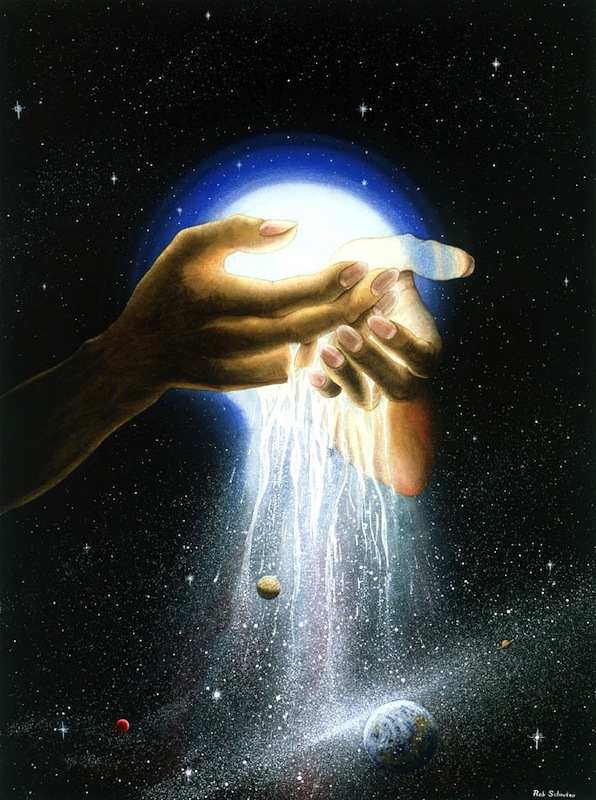Raised in an Anglican home and an American Puritan religious ethos as I was, a patriarchal British accent, afternoon tea and hard work have always been equated with God. I was raised on the creation story with its hard work for six days followed by a rest on the seventh – the Sabbath.
So for almost six decades, I have worked hard for six days, and tried to rest on the seventh. I have worked to create my life as a good man. I have worked to create pottery vessels. I have worked to raise money for the poor so that they could eat, the marginalized so that they might live, and the Episcopalians so that they might…well… go to a pretty church for 90 minutes a week. Ok, well two out of three were worthy of my hard work. That’s not so bad.
In home after home, I have worked hard to have a beautiful one. A big enough one. An impressive enough one. I have worked hard to buy things for these homes and used the value of entertaining as an excuse. I have cooked countless five-course meals for friends. I have worked hard to raise money to give away as philanthropy. I have worked hard to write four books and more than 1,000 short-form essays to contribute to the world’s libraries. I have counseled thousands through difficult times, thrown pots for 10,000 hours and I have presided over hundreds of liturgies, led annual meetings and cooked parish dinners and taught hundreds of classes, courses and retreats.
In the later half of my fifth decade, I have lived almost twice as long as the average human of this planet’s hospitality. And after thousands of meals, clay pots, liturgies and written words, I am tired. Simply tired. Add to that a work addiction and, well, ’nuff said.
Perhaps you are tired too. Perhaps you have worked hard too; creating product, self, family, income, crafts, art, social events. Perhaps you are tired.
Having travelled around the world to every continent and to more than two dozen countries, I can tell you that Americans work very hard. We are rich after all. It takes a lot to be rich. And being rich (more income than for today’s food and bed) is killing our souls.
As I watch the nightly PBS News Hour , I wonder if we in the West have lost our way. I wonder if our wealth and power and “rights” come at a cost too high for the planet to pay. Too high for us to pay.
What good is a luxurious home to children whose parents are absent? What good is a cheap blouse from Target if child-slave labor made it inexpensive? What good is a wealthy diocese whose clergy and bishops are abusive or abandoning? What good is a fancy car if the driver is sleepy and a threat to everyone on the road? What good is a land of “plenty” when her people are morbidly obese and losing feet and eyes to diabetes? What good is a person with a long to-do-list but a short fuse and an impoverished self-esteem? What good are gardens in which people make no time to linger or grass lawns on which nobody dozes in the mid-day sun with wine, tomatoes and cheese?
For decades, I imagined God working really hard to make this planet and its creatures and so, needing a day of rest to recover – that was the story told to me at church. And I was told I was made in that image.
But Rob’s painting “In the beginning” is an icon offering a different scripture. Here are a woman’s hands – a brown woman’s hands. And the act of creation is to let light pour through her fingers into existence of the material. Have you ever let sand fall through your hands? Or rice? What effort does it take?
Might it be possible that we work hard to be rich instead of working enough to simply live and to live simply? Easy for me to say – a white man of privilege. But in speaking with historians, I am told that the native people of this land – before the white-man arrived to steal, infect and evangelize – worked, on average, for four hours a day. FOUR HOURS A DAY! Men hunted and built structures for four hours a day. Women cooked and raised children for four hours a day. Stunned, I asked what 14th century native American Indians did the rest of the day. The historian smiled and said: “naps, sex, conversation, laughter, games, dance, meals, sleep, cuddling. They only worked 20 hours a week; but they lived simply so they might live well.”
In this icon of creation by Rob Schouten, God simply holds existence and lets it pour through her fingers.
Perhaps we do not need more things or more power. Perhaps we need more rest. Perhaps we work hard because it anesthetizes our pain. Perhaps there are better ways to deal with our pain.
Perhaps we are all addicted to work (and to that which work makes possible). Perhaps that addiction is shrouded by a massive social and ecclesial agreement not to discuss work-addiction? After all, is that not how addictions begin and thrive?
“In the beginning”, a watercolor by Rob Schouten (c) 1985, Rob Shouten Gallery, Whidbey Island
Charles LaFond is an Episcopal priest, author, speaker, potter, and fundraiser living on the cliffs of an island in the Salish Sea. He writes The Daily Sip (thedailysip.org); which is neither.

